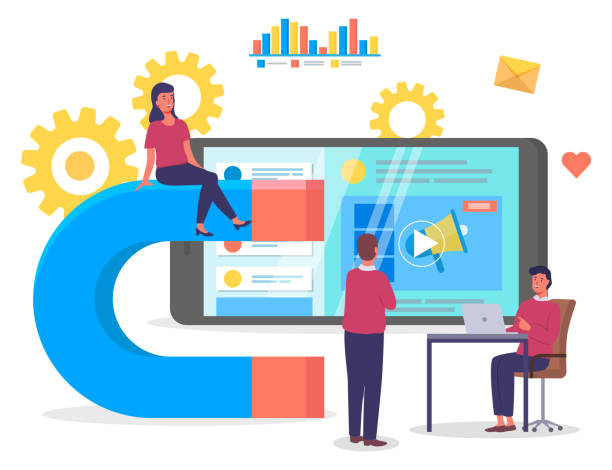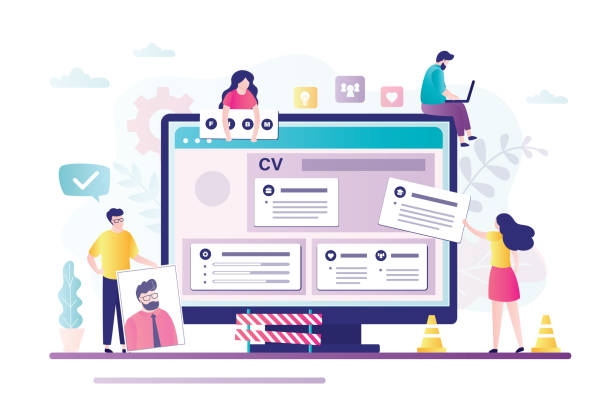The Importance of Building a Personal Online Platform in Today’s World
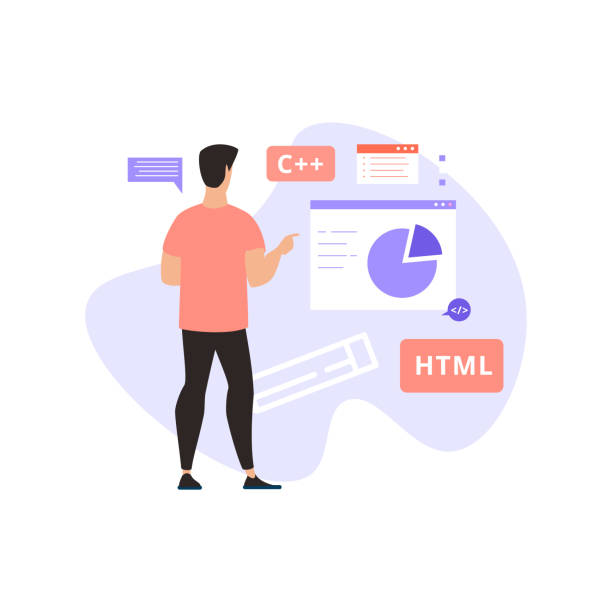
In the current digital age, having a strong #online_presence has become more important than ever.
It’s no longer enough to just have a #digital_resume or social media profile; to create a lasting and effective #personal_branding, you need a dedicated space.
This is where the concept of personal website design comes into play.
A personal website is not only a showcase for your skills, projects, and achievements but also a platform for expressing opinions, sharing knowledge, and even earning income.
Have you ever thought about how you can have complete control over your content beyond the limitations of social platforms? A personal website gives you this ability.
You own your content, not a large tech company.
This is especially important for professionals, artists, writers, and entrepreneurs.
Your personal website can include a portfolio, blog, image gallery, or even a store for your digital products.
In essence, it’s a personal command center for all your online activities.
This growing trend in recent years shows that more people are moving towards building a personal website to strengthen their online identity.
This is a personal branding approach that allows you to tell your story in a controlled and professional manner.
Falling behind in competition with large online stores?
Rasaweb makes your business online with professional e-commerce website design and increases your market share!
✅ Increase brand credibility and customer trust
✅ Easy shopping experience leads to more sales
⚡ Act now to receive free website design consultation!
Why Should We Have a Personal Website? Advantages and Goals
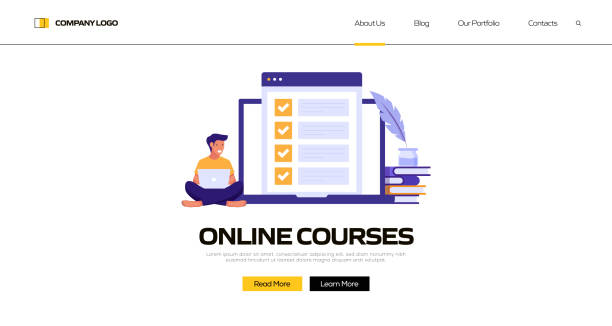
Having a personal website is not just a luxury option, but a necessity in today’s competitive landscape.
Among its most important advantages is the creation of a dynamic and always accessible online portfolio.
Instead of sending static resumes and cover letters, you can direct potential employers, clients, or colleagues directly to your website to view your portfolio visually and interactively.
This approach is particularly vital for individuals working in creative fields such as graphic design, programming, writing, or photography.
Another main goal of personal website design is to establish your credibility and expertise.
By publishing specialized content, articles, or even personal opinions, you can introduce yourself as an authority in your field.
This is particularly valuable in professional networks and work.
Additionally, a personal website provides a platform for networking; visitors can connect with you through contact forms or comment sections, which in turn helps expand your professional network.
The question is whether relying on third-party platforms truly meets all your needs for showcasing your capabilities? Absolutely not.
Your website is your digital identity that you can shape however you want and optimize it for your long-term goals.
Content Planning and Strategy for Your Personal Website Design
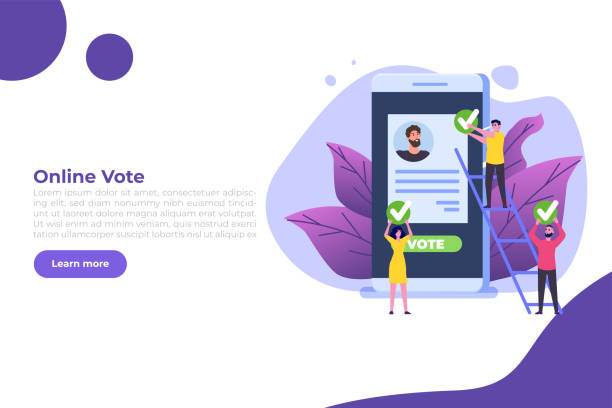
Before any action for personal website design, the strategic planning phase is of paramount importance.
This phase involves defining the target audience, determining the type of content, and how to organize it.
Without a clear content strategy, your website may appear disorganized and fail to convey your main message correctly.
Do you want your website to be an online resume, a specialized blog, or a combination of both? The answers to these questions will shape the structure and content of your site.
For example, if your goal is to attract employers, your portfolio and skills should be emphasized.
If you intend to be known as an expert, a blog with specialized and analytical content becomes important.
Content types for a personal website can be very diverse: from articles and blog posts to videos, podcasts, infographics, and even case studies.
This approach ensures that visitors encounter engaging and relevant content.
Below is a table of content types and their uses for a personal website:
| Content Type | Main Use | Example |
|---|---|---|
| Articles and Blog Posts | Knowledge sharing, expertise establishment, SEO improvement | Programming tutorials, market analysis, book reviews |
| Portfolio and Work Samples | Showcasing abilities and projects, attracting clients/employers | Graphic designs, code snippets, artistic photos |
| Biography and About Us | Personal introduction, building connection and trust | Professional journey, personal interests, work philosophy |
| Video and Podcast | Multimedia content, attracting diverse audience | Interviews, video tutorials, reviews |
Choosing the Right Platform and Technical Tools for Your Personal Website
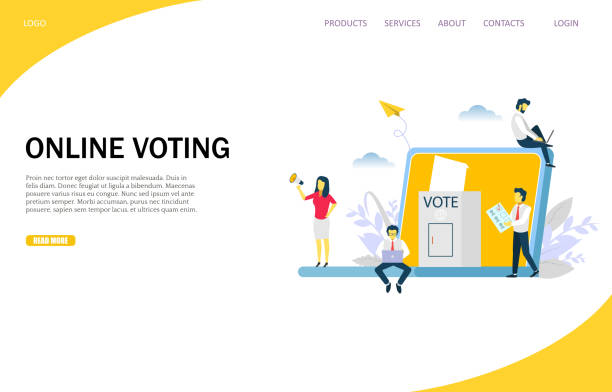
After determining your content strategy, the next step is choosing the right platform to build your personal website.
This choice can significantly impact ease of management, development capabilities, and final cost.
There are numerous options in the market, each with its own advantages and disadvantages.
Ready-made platforms like WordPress, Squarespace, and Wix are popular solutions that allow users without coding knowledge to design and launch their websites.
These tools simplify the process with visual user interfaces and ready-made templates.
On the other hand, if you are looking for complete control and infinite customization capabilities, custom coding (using languages such as HTML, CSS, JavaScript) or using web development frameworks like React or Vue.js are more advanced options.
Of course, these methods require more technical knowledge.
In addition to the platform, choosing a hosting (Host) and domain (Domain) is also highly important.
Your domain name is your website’s address (e.g., yourname.com), and hosting is the space where your website files are stored.
Choosing a short, relevant, and memorable domain name, and a reliable hosting service with good speed and support, will be key pillars for the success of your personal website.
These choices form the technical foundation of your online presence.
Does your current website build the trust that potential customers should have in your business? If the answer is no, it’s time to get a professional and impactful corporate website with Rasaweb.
✅ Fully customized design tailored to your brand identity
✅ Increased lead generation and business credibility in the eyes of customers⚡ Contact us for a free consultation!
Principles of User Experience (UX) and User Interface (UI) Design in Personal Websites
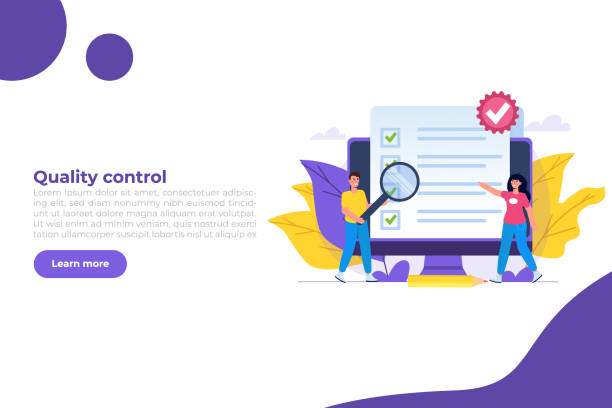
Personal website design is not limited to its visual appearance; special attention must also be paid to the overall user experience.
This is where the concepts of User Experience (UX) and User Interface (UI) become important.
A website with good UX is one that is easy, logical, and pleasant to use.
Good UI means an attractive, consistent, and user-friendly visual design.
In fact, UI is how it looks, and UX is how it works.
Among the key principles in this area is Responsive Design.
This means that your website should display correctly and function properly on any device (mobile, tablet, laptop).
Ignoring this principle can lead to losing a large portion of your audience.
Also, site Navigation should be simple and intuitive.
Users should be able to easily find what they are looking for.
Using clear menus, logical internal links, and a hierarchical content structure helps improve user experience.
Site loading speed, use of readable fonts, appropriate color contrast, and sufficient whitespace are other factors that add to the visual appeal and user-friendliness of your website.
A beautiful but inefficient website quickly frustrates users; therefore, the balance between aesthetics and functionality is key to success.
Creating Engaging Content and Managing It on Your Personal Website
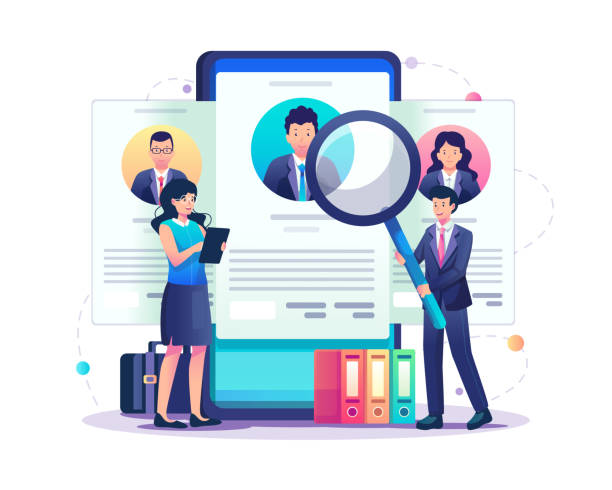
The heart of every successful personal website is its content.
Producing engaging, original, and high-quality content is a key factor in attracting and retaining your audience.
Your content should not only be informative and useful but also written in a way that engages the audience’s emotions and encourages interaction.
For example, using storytelling, real-life examples, and a friendly tone can make your content more entertaining and relatable.
Beyond quality, consistency in content production is also highly important.
A blog that is rarely updated or a portfolio that hasn’t had new projects added for years quickly loses its appeal.
To better manage this process, creating a content calendar can be very helpful.
This calendar allows you to plan what type of content, on what topic, and when it should be published.
Furthermore, your content should always be up-to-date.
Reviewing and updating old articles, correcting outdated information, and adding new details demonstrate your professionalism and commitment.
Using high-quality images, videos, and infographics can also enhance the visual appeal of your content and make it more accessible to a wider range of audiences.
Ultimately, content management is an ongoing process that requires attention and precise scheduling.
Search Engine Optimization (SEO) to Increase Your Website’s Visibility
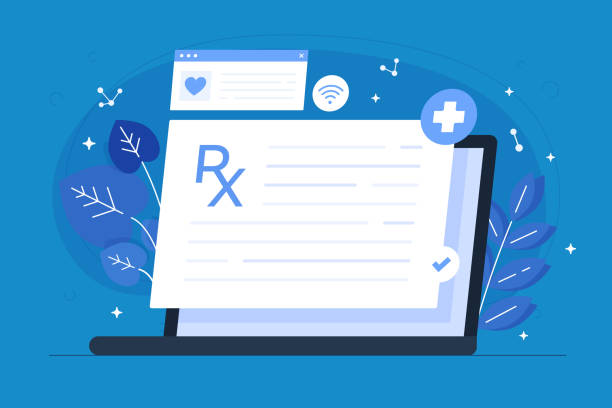
After completing your personal website design and content creation, the next step is to ensure your website is found by your target audience.
This is where Search Engine Optimization (SEO) comes into play.
SEO is a set of techniques that helps your website achieve a higher ranking in the search results of Google and other search engines.
Without SEO, even the best websites can get lost among a vast amount of information.
The principles of SEO for a personal website include three main sections: On-Page SEO, Off-Page SEO, and Technical SEO.
On-Page SEO involves optimizing keywords in content, titles, meta descriptions, and using appropriate Heading tags.
Off-Page SEO relates to building quality links from other websites to your website, which increases your domain authority and power.
Technical SEO includes site loading speed, mobile compatibility, URL structure, and sitemaps.
Did you know that even choosing the right domain name can play a role in your SEO? Below is an SEO checklist for your personal website:
| SEO Item | Description | Status |
|---|---|---|
| Keyword Research | Finding words and phrases your target audience searches for. | ✅ |
| Title and Meta Description Optimization | Writing engaging titles and concise descriptions for each page. | ✅ |
| Friendly URL Structure | Using short, descriptive, and keyword-rich URLs. | ✅ |
| Site Loading Speed | Ensuring fast loading of website pages. | ✅ |
| Mobile Friendliness | Ensuring correct display and proper functionality of the site on mobile. | ✅ |
| Creating a Sitemap | A file to help search engines understand the site structure. | ✅ |
Ways to Monetize and Expand the Horizons of Your Personal Website

A personal website can go beyond a portfolio or blog and become a source of income.
The question arises whether one can truly monetize a personal platform? The answer is yes, and there are various ways to do so.
One of the most common methods is selling services or products.
If you are an expert in a field, you can offer your consulting, coaching, design, writing, or programming services directly through your website.
If you are an artist, you can sell your artwork.
Another method is Affiliate Marketing.
In this method, by introducing others’ products or services and placing exclusive links on your site, you receive a percentage of the sales.
Also, Advertising through platforms like Google AdSense can be a source of passive income, although for this method, you need a high volume of traffic.
Selling digital products such as eBooks, online courses, design templates, and plugins is also very popular.
Additionally, by creating a Membership Site, you can offer special content or exclusive access to users in exchange for a subscription fee.
These approaches allow you to create added value from your expertise and content and convert it into income, thereby expanding the horizons of your personal website.
Did you know that 94% of a first impression of a company is related to its website design?
Rasaweb, by offering professional corporate website design services, helps you create the best first impression.
✅ Creating a professional and trustworthy image for your brand
✅ Easier attraction of potential customers and improvement of online standing
⚡ Get free corporate website design consultation
Maintenance, Updates, and Security of Your Personal Website
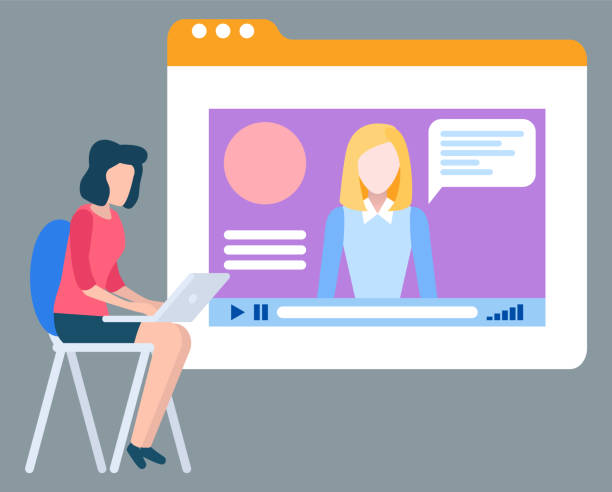
Personal website design is just the beginning; maintenance, regular updates, and ensuring its security are vital for smooth operation and protecting your information.
Websites are living entities that require continuous care.
Ignoring these aspects can lead to performance issues, security vulnerabilities, and even data loss.
One of the most important aspects of maintenance is regular website backup.
In case of any problem (such as hacker attacks, human error, or server failure), having a backup allows you to quickly restore your site.
Also, updating software and plugins (especially on platforms like WordPress) is highly important.
Developers constantly release updates that include bug fixes, performance improvements, and most importantly, security patches.
Failure to update on time can make your website vulnerable to cyberattacks.
Installing an SSL certificate (HTTPS) to encrypt information between the user and the server, using strong passwords, and installing security plugins are other essential measures to protect your personal website.
Regular monitoring of website performance, checking for broken links, and optimizing images also help maintain site speed and efficiency.
The Future of Personal Website Design and New Trends
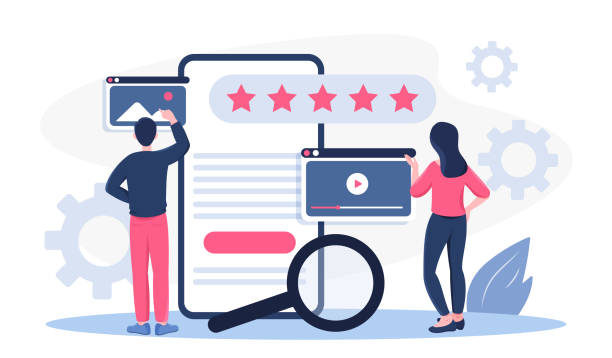
The world of the web is constantly evolving, and personal website design is no exception.
Emerging trends are guiding the formation and evolution of personal online platforms towards new horizons.
One of the most important of these trends is the integration of Artificial Intelligence (AI) and Machine Learning into the website design and management process.
AI-powered tools can help users with content generation, SEO optimization, user behavior analysis, and even personalizing the user experience.
Imagine a website that tailors its content based on each visitor’s specific interests!
Furthermore, Voice Search is expanding, and optimizing websites for it is becoming a necessity.
Designers and owners of personal websites should consider how to tailor their content to answer questions posed by voice.
Micro-interactions, subtle animations, and small interactive elements that improve user experience will also play a significant role in future design.
On the other hand, with increasing concerns about data privacy, transparency and user control over their personal information will become a fundamental principle in future website design.
Ultimately, the concept of personal branding continues to evolve, and personal website design, as the focal point of this brand, will always remain in the spotlight.
Frequently Asked Questions
| Question | Answer |
|---|---|
| What is a personal website? | A personal website is an online platform that an individual creates to display their information, resume, portfolio, interests, or ideas. This website serves as a digital business card and a place for personal branding. |
| Why do I need a personal website? | Having a personal website helps you establish a professional online presence, showcase your skills and experiences, connect with your audience, find new job opportunities, and increase your personal credibility. |
| What content should I put on my personal website? | Typical content includes: About Me page (biography, education, experiences), resume, portfolio (projects, articles, designs), blog (writings, opinions), and contact information. |
| What are the basic steps to create a personal website? | The steps include: 1. Defining goal and audience 2. Choosing a domain name 3. Choosing hosting 4. Selecting a platform (e.g., WordPress or custom coding) 5. Designing and structuring 6. Content creation 7. SEO and optimization 8. Launch and maintenance. |
| Should I use a Website Builder or code it myself? | If you don’t have coding knowledge or are looking for a quick solution, website builders (like Wix, Squarespace) or CMSs (like WordPress) are good options. If you want full control and high flexibility and have technical knowledge, custom coding is the best way. |
| How important is design (appearance) for a personal website? | Website design is very important. A beautiful, user-friendly, and professional design ensures visitors have a good experience, stay longer on the site, and take your personal brand seriously. Poor design can have a negative impact. |
| What is Responsive Design and why is it important? | Responsive design means designing a website whose appearance and functionality automatically adapt to the screen size of the user’s device (desktop, tablet, mobile). This feature is crucial to ensure a good user experience across all devices. |
| How can I choose a good domain name for my personal website? | A domain name should be relevant to your identity (usually your first and last name), short and memorable, easy to pronounce, and avoid excessive numbers or hyphens. Common extensions like .com or .ir are usually preferred. |
| What is Web Hosting? | Web hosting is space on an internet-connected server that stores your website files (such as codes, images, videos) and makes them available to users 24/7. Without hosting, your website will not be accessible. |
| How can I promote my personal website? | You can use social media, Search Engine Optimization (SEO), content marketing (blog writing), sharing links in email signatures, and networking with others in your field to promote your website. |
And other services of Rasaweb Advertising Agency in the field of advertising
Smart Content Strategy: A new service for enhancing campaign management through custom programming.
Smart Direct Marketing: Revolutionize user engagement with the help of SEO-driven content strategy.
Smart Sales Automation: Transform SEO ranking improvement with the help of attractive UI design.
Smart UI/UX: Designed for businesses seeking to increase click-through rates through user experience customization.
Smart Website Development: Designed for businesses seeking user engagement through custom programming.
And over a hundred other services in the field of internet advertising, advertising consultation, and organizational solutions
Internet Advertising | Advertising Strategy | Advertorial
Resources
- Website Design Guide
- How to Design a Personal Website?
- Elements of a Successful Website
- Personal Website Design Tips
? Are you looking for significant growth for your business in the online space? Rasaweb Afarin, with unparalleled expertise in digital marketing, from fast and optimized website design to comprehensive SEO strategies and content creation, is your comprehensive solution for visibility and attracting more customers.
📍 Tehran, Mirdamad Street, next to Bank Markazi, Southern Kazeroon Alley, Ramin Alley, No. 6

